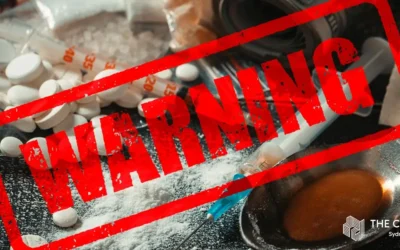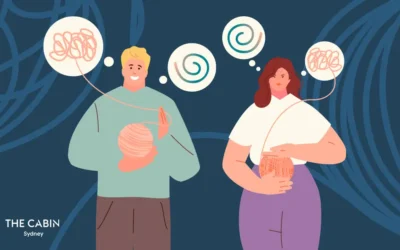The combination of cocaine and alcohol can be particularly dangerous for the cardiovascular system and is a major contributor to the high rates of cardiac-related deaths among individuals who abuse drugs.

Cocaine and Alcohol – A Deadly Duo
Cocaine is a powerful stimulant that can increase heart rate, blood pressure, and overall stress on the cardiovascular system. When cocaine is consumed, it causes the release of large amounts of adrenaline and other stress hormones, which can constrict blood vessels and increase the workload on the heart. This can lead to a range of cardiovascular problems, including heart attacks, strokes, and arrhythmias.
Alcohol, on the other hand, is a depressant that can produce a range of effects on the cardiovascular system, depending on the amount consumed. In small amounts, alcohol can have a relaxing effect on blood vessels and may even have some protective effects on the heart. However, in larger amounts, alcohol can have the opposite effect, constricting blood vessels and increasing the workload on the heart.
When cocaine and alcohol are consumed together, they can interact in a way that exacerbates the negative effects on the cardiovascular system. The combination of these two substances can lead to the production of a new compound known as cocaethylene, which can increase the duration and intensity of the drug’s effects. Cocaethylene can further constrict blood vessels, increase blood pressure, and place additional stress on the heart.
Cocaethylene is a psychoactive compound that is produced when cocaine and alcohol are consumed together. The combination of these two substances leads to the formation of the potentially lethal new chemical compound in the liver; cocaethylene. This compound has a unique range of effects on the body and brain and can increase the risk of various health problems with potentially lethal outcomes.
Cocaine is a powerful stimulant that can produce feelings of euphoria, increased energy, and heightened alertness. Alcohol, on the other hand, is a depressant that can produce feelings of relaxation, sedation, and impaired judgment. When these two substances are consumed together, and interact in the liver then cocaethylene is produced.
The formation of cocaethylene occurs when enzymes in the liver break down cocaine and alcohol into their component parts. One of the byproducts of this process is a compound known as ethylene, which reacts chemically with cocaine to produce cocaethylene. This process can take several hours to complete, and the levels of cocaethylene in the body can continue to increase as more cocaine and alcohol are consumed which is a common feature of cocaine and alcohol abuse.
Cocaethylene can have uniquely harmful effects on the body and brain that differ from those of cocaine or alcohol alone. The compound has a longer half-life than either cocaine or alcohol, which means that it can remain in the body for longer periods. This can increase the duration and intensity of the drug’s effects, and as a result, can also increase the risk of acute toxicity and overdose.
Are Drug
Taking Over
Your Life?
The risks associated with cocaethylene use are both broad and very significant. The compound increases the risk of cardiovascular problems, such as heart attacks, strokes, and arrhythmias. This is due to the ability that cocaethylene has to constrict blood vessels and increase blood pressure, which then places additional strain on the heart and other organs. It is not uncommon to hear cocaine users complain of tightness in the chest or chest pain.
Cocaethylene can also increase the risk of liver damage and other liver-related problems. The liver plays a crucial role in breaking down and eliminating toxins from the body, and the production of cocaethylene can place additional stress on this organ. Over time, this can lead to liver damage and other health problems.
In addition to the physical risks associated with cocaethylene use, the compound can also have negative effects on mental health and cognitive function. Research has shown that
cocaethylene can impair cognitive function, memory, and attention, and can increase the risk of anxiety, depression, and other mental health problems.
Another concern with cocaethylene use is the risk of addiction. The compound can be highly addictive, and individuals who use cocaine and alcohol together may be more likely to develop an addiction to these substances. Addiction can be a difficult condition to treat and may require specialized care and support to overcome.
Although cocaine and alcohol are both harmful substances when consumed alone, doing so can have many catastrophic consequences.
Ten ways that cocaine and alcohol can be fatal are listed below:
-
- Alcohol and cocaine together have the potential to induce a heart attack by abruptly raising blood pressure and heart rate.
-
- Stroke: Cocaine and alcohol usage can narrow blood arteries, which can result in a blockage in the brain and a stroke.
-
- Breathing problems and, in severe situations, pulmonary collapse can result from cocaine and alcohol use’s respiratory depression.
-
- Drinking alcohol and using cocaine both raise the chance of seizures, which can be fatal.
-
- Alcohol and cocaine use together can raise the danger of overdose because the two drugs’ effects might be amplified by one another.
-
- Liver failure: Cocaethylene formation, a substance created when cocaine and alcohol are combined, can put the liver under additional strain and raise the risk of liver failure.
-
- Kidney failure: Cocaine and alcohol usage can raise blood pressure, which can harm the kidneys and induce kidney failure.
-
- Cocaine and alcohol usage can dehydrate a person, which can result in electrolyte imbalances and other problems.
-
- Choking: The use of cocaine and alcohol can impair coordination and cause vomiting, which can increase the risk of choking.
-
- Accidents: Cocaine and alcohol use can raise the likelihood of accidents, especially deadly ones like automobile crashes and falls since they impair judgment and coordination
Overall, the combination of cocaine and alcohol can be highly toxic to the cardiovascular system. The production of cocaethylene in the body can have significant risks and negative consequences and can increase the risk of a range of cardiac-related problems. This is why most cardiac-related deaths from drug abuse in Australia are related to the use of these substances.
At The Cabin Sydney, we believe it is important for individuals who abuse drugs to be aware of these risks. Accurate information and informed decision-making allows individuals to take steps to minimize their exposure to these substances. This may include seeking professional help and support to overcome addiction, avoiding the use of cocaine and alcohol together, and practising healthy lifestyle habits to support overall health and well-being.
If you or someone you love is affected by cocaine dependence then call The Cabin today. We are ready to help, right now.
If You or a Loved One is Suffering from Addiction
We are Here to Help You Start Your Journey to Recovery


